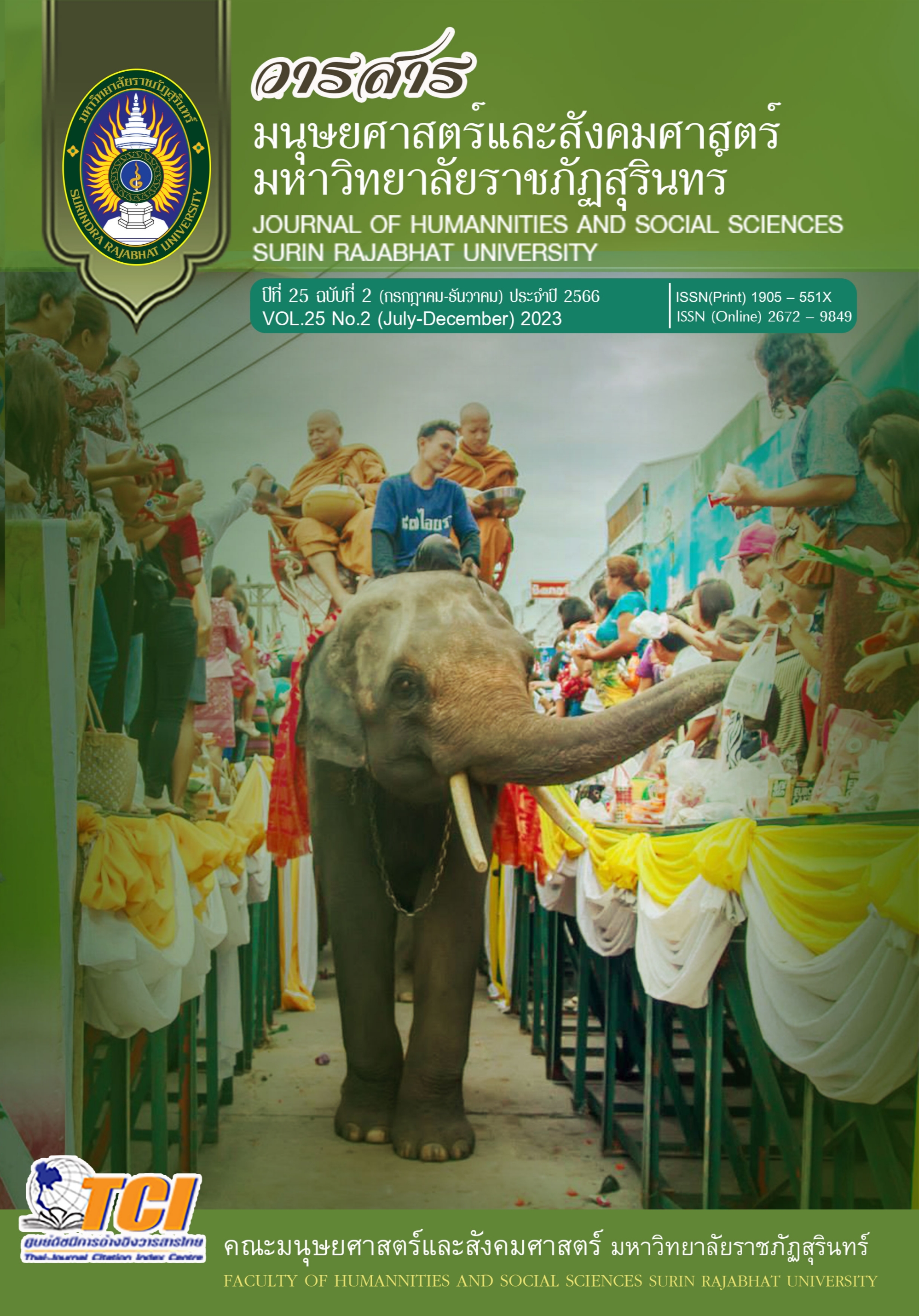The Influence Factors of Green Finance Development were Analyzed Based on the Bank’s Perspective
คำสำคัญ:
Green Finance, Policy Implementation, Influencing Factors toward Green Finance Implementationบทคัดย่อ
Against the background of increasingly severe environmental pollution, circular economy and sustainable development have been strongly advocated worldwide. Green economy and green finance will be the correct way to promote economic and environmental development. The purposes of this study are 1) to study the implementation of green finance; and 2) to analyze the influencing factors of the implementation of green finance from the perspective of banks. The sample size is 400 senior executives and credit personnel of banking institutions in Zigong. The tool used in this study was a questionnaire. The statistical data used in data analysis include frequency, percentage, average value, and standard deviation. Multiple Regression Analysis (MRA) with the coefficient of determination (R2) at a statistical significance of 0.05 was used for the hypothesis test. The results found that Effectiveness, Efficiency, and Sustainability together constitute the implementation effect of green finance. When considering various aspects, it was found that Efficiency and Sustainability can better explain the implementation effect of green finance, but Effectiveness is the lowest, which can explain the implementation effect of green finance. Thus, the influence of the Policy design, Policy justifications, Policy logic, Feasibility, Stakeholders and their Engagements, the Institutional and Societal Context, Repayment capacity, Security risk, Industry characteristics, External supervision, and the impact of Implementation Strategy on green finance is significant.It was concluded that (1) the implementation of green finance demonstrates effectiveness, efficiency, and sustainability; (2) key determinants influencing green finance encompass external regulations, repayment capacity, stakeholder involvement and agreements, security risks, as well as other pertinent factors.
Downloads
เอกสารอ้างอิง
Chen Li. (2022). Research on the influence of green credit policies on financing constraints of green enterprises. Shanghai International Studies University.
Simon, D. (2021). “Central bank mandates, sustainability objectives and the promotion of green finance.” Ecological Economics. 184 (2021). p.p.1-20.
Du Li, Zheng Lichun. (2020). “Research on the quality evaluation of China's green finance policy.”Journal of Wuhan University (Philosophy and Social Sciences). 2020(03).
Ding Ye. (2023). “Study on the impact of green finance on ecological efficiency from the perspective of high-quality economic development.” Market Week. 36(3) : 6-10.
Han Fengxia, et al. (2017). “Research on the driving force of green finance development under the new normal of economy -- based on the tripartite game relationship between government, banks and enterprises.” Economics and Management Review. 2017 (05).
Junjie Li, Bei Zhang, Xin Dai. (2022). “Knowledge Ecology and Policy Governance of Green Finance in China-Evidence from 2469 Studies.” International Journal of Environmental Research and Public Health. 20(1) : 202.
Jiang Zaiyong and Wei Changjiang. (2017). “The role, mode and efficiency of government in the development of green finance.”Journal of Lanzhou University (Social Sciences). 2017 (06).
Kidney S. (2015). Bonds and Climate Change. Springer International Publishing.
Li Jian and Dou Erxiang (2020). The realistic dilemma of green finance development and the construction of Taffu governance model. Fujian Forum (Humanities and Social Sciences Edition). 2020(08).
Lian Bo. (2019). “Strategies for Efficient Use of agricultural Water Resources based on Sustainable Development Concept : An Economic Analysis of Effective Allocation of Agricultural Water Resources.” Journal of irrigation and drainage, 38(12) : 26-37.
Liu Yunpeng. (2022). The existing problems and countermeasures of green finance development in China.Northern economy and trade. 2022(02).
Muhammad Irfan. (2022). “Influence mechanism between green finance and green innovation : Exploring regional policy intervention effects in China.” Technological Forecasting and Social Change. Vol.182. No. 2, p.p. 121-882.
Niu Haipeng et al. (2020). “Institutional change and Effect evaluation of China's green finance policy:A case study of green credit.” Management review. 2020 (08).
Pauline Deschryver. (2020). “What Future for the Green Bond Market? How Can Policymakers, Companies, and Investors Unlock the Potential of the Green Bond Market?.” Journal of Risk and Financial Management. 2020.
Peterson K. Ozili. (2022). “Policy perspectives in promoting green finance.” Sustainable Finance and the Global Health Crisis. 11(10) : 1-21.
Qian Taihong. (2017). Some considerations on China's green development after the Paris Agreement. Tsinghua University Press.
Ren Chenxi. (2019). An empirical study on the relationship between industrial policy, industry characteristics and corporate debt financing. Shenyang University of Technology.
Setiawan, D.A., (2018). “The Effect Of Financial Leverage On Debt Repayment Capacity : Evidence From Listed Shipping Company In Indonesia.” Hasanuddin Economics and Business Review. 2(2) : 113.
Wang Dianwu. (2020). Study on the economic effect of green credit on the progress of green and low-carbon technology. Jilin University.
Wu Yilun. (2022). Analysis of green finance business of Industrial Bank under the background of "carbon peak and carbon neutral". Hebei University of Finance.
Zhang Yue and Zhou Yingheng. (2021). “The causes and prevention of the "greenwashing" phenomenon of green finance: Inspiration from the experience of Japan.” Modern Japanese economy. 2021(05).











